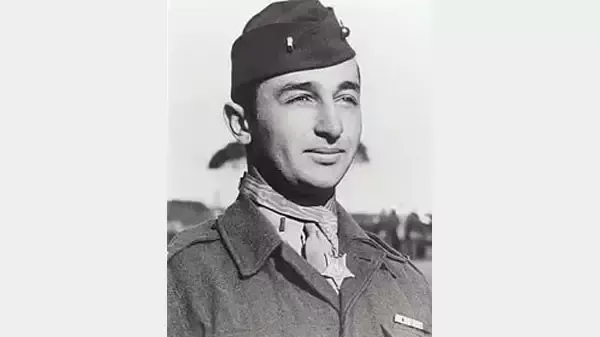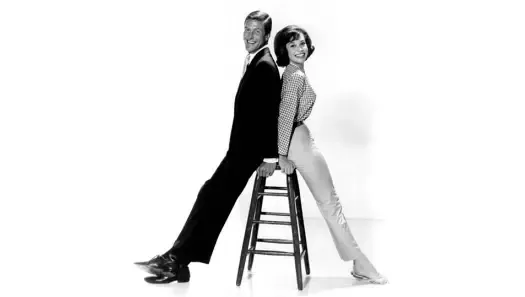HeroVet: Mitchell Paige, Exposing Medal of Honor Imposters

When Mitchell Paige was six years old, his mother took him to an Armistice Day parade. (Armistice Day, for those too young to be familiar with the term, celebrated the eleventh hour of the eleventh day of the eleventh month when Germany signed an armistice, ending the fighting in The Great War, AKA World War I. It has since evolved into Veterans Day.)
As the squads and platoons of veterans marched past, the railroad worker’s son from Camden Hill, a town of 300 southwest of Pittsburgh, was taken with the Marines, how impressive they looked in their neatly pressed trousers with the red stripe running down the side.
"One day, I want to be like those guys," he told his mother. And in 1936, freshly graduated from high school, 18-year-old Mitchell Paige made good on his word and joined the Corps. As his mother bade him farewell, she offered these words of advice: Don’t try to figure everything out for yourself, she told her son. Trust in God and He’ll show the way.
Which Mitchell Paige has done ever since.
To say that he "saw action" in World War II would be an understatement of profound dimensions. He fought in bloody battles across the South Pacific, culminating in one horrific night in October 1942. The Marines had taken Henderson Field, a parcel of land on Guadalcanal crucial to the continuing American advance. Platoon Sergeant Paige and his men were defending the airfield when an advancing Japanese force broke through the perimeter in front of his position. The Marines were outnumbered 30-to-1.
Throughout the night, as the enemy mounted human-wave attacks, Paige and his platoon, by then down to 32 men, kept firing their machineguns until all except Paige were dead or seriously wounded. Paige, who had been hit by shrapnel and had a bayonet plunged through his hand, relentlessly repelled the Japanese.
To quote from his citation: "Alone, against the deadly hail of Japanese shells, he fought with his gun and when it was destroyed, took over another, moving from gun to gun, never ceasing his withering fire against the advancing hordes until reinforcements finally arrived." In the morning, 920 dead enemy soldiers littered the airfield. Only Mitchell Paige was left standing.
Mustang
Given a battlefield commission, Paige, by then recuperated from his wounds, was in Australia when he was awarded the Medal of Honor for his actions that October night in the Solomon Islands. After being presented with the Medal, he took some pictures, then packed up the Medal in a celebratory cigar box and shipped it home to his mother. He didn’t feel like a hero. "To me," he said during a telephone interview from his home in La Quinta, California, "the biggest heroes are those who stayed behind and died. They’re the real heroes."
The mustang officer, too, was a hero, one of a relative handful of those cited for extraordinary valor and conspicuous gallantry. He remained in his beloved Corps for 28 years, "retiring," finally, in 1964 as a colonel after both he and his son saw service in another war in Asia in a place called Vietnam.
But Mitchell Paige has never really retired. He found a calling and for 50 years has been indefatigable in its pursuit: finding and exposing frauds who desecrate the Medal of Honor and the men who have earned it - and, in fact, all of those who served and lost their lives.
The first one he met was at a parade. "That fella showed up flaunting the Medal," he said, undeterred by the then paltry $250 fine called for by Section 704 of the U.S. Code but shaken when assaulted by Mitchell Paige’s abiding sense of outrage.
At gun shows he’d confront dealers selling the Medal who’d laugh in his face when he objected to their lack of ethics. Go ahead and arrest me, they’d tell him. Which only teed Mitchell Paige off. He vowed: I’m going to track these guys down from coast to coast. Over the years he estimates he’s exposed 500 of them. "I’ve got a three-ring binder full of those characters," he said. "They’re a disgrace," Paige said, explaining the outrage that fuels his passion. "They make me mad. I’ve seen all those thousands of gravestones of Americans who fought and died on foreign shores." For Mitchell Paige, sacrifice is sacred, and those who pose as what they’ve never been are an insult to those who really gave of themselves.
He tells about the poseur he discovered "at one of the fashionable country clubs out here. He was newly married. I hooked him up with Andy Rooney [of "60 Minutes"]. Andy interviewed him, and told him when the show would be broadcast. Well, his wife was just so excited. She invited a whole houseful of neighbors in to watch the episode, she was so proud." Pride turned to an embarrassment of tears when her husband was exposed before a national audience. He was eventually booted out of the country club, and his wife left him.
Paige tells about another imposter whose obituary noted that he had received the Medal for his actions in bombing Tokyo as the Second World War neared its end. "That poor widow and his children don’t know," Paige remembers thinking. "Somebody had to tell her: Your husband really wasn’t the man you thought he was. Because she was in for a rude awakening when she’d inquire about the benefits she was entitled to." When he met with her, she was in tears. "But he was presented with the Medal by General MacArthur," she said. "I have a picture of him with the Medal around his neck."
The photo may have been real: Medal of Honor recipients would let their buddies wear the Medal in the heady hours of celebration after a presentation. Which was something Mitchell Paige had done in Australia.
Righteous Partners
Eight years ago, he linked up with a young FBI agent named Tom Cottone, who is now the national case agent for investigating alleged instances of fraud in the wearing, manufacturing, and/or sale of the Medal of Honor. Together the old veteran and the young agent are partners: "I find ‘em and Tom makes the case against ’em," Paige said.
One of the biggest cases was not against any individual but against the company contracted to fabricate the Medal. In 1996, Special Agent Cottone made the ironclad case that resulted in the conviction of Lordship Industries of Hauppauge, New York, for illegally selling 300 Medals of Honor. And now, backed by stiffened penalties called for in Section 704, Title 18 of the US Code - penalties achieved after years of effort by Mitchell Paige - the FBI has real legal ammunition in its arsenal.
For Mitchell Paige, who is now in his ninth decade, the battle goes on. There are more imposters, more wannabes coming out of the woodwork. But those who desecrate the memory of America’s true heroes better watch out, because they have an implacable enemy in an ex-Leatherneck on a 50-year mission. "Sooner or later," Paige said, "we get ’em."



